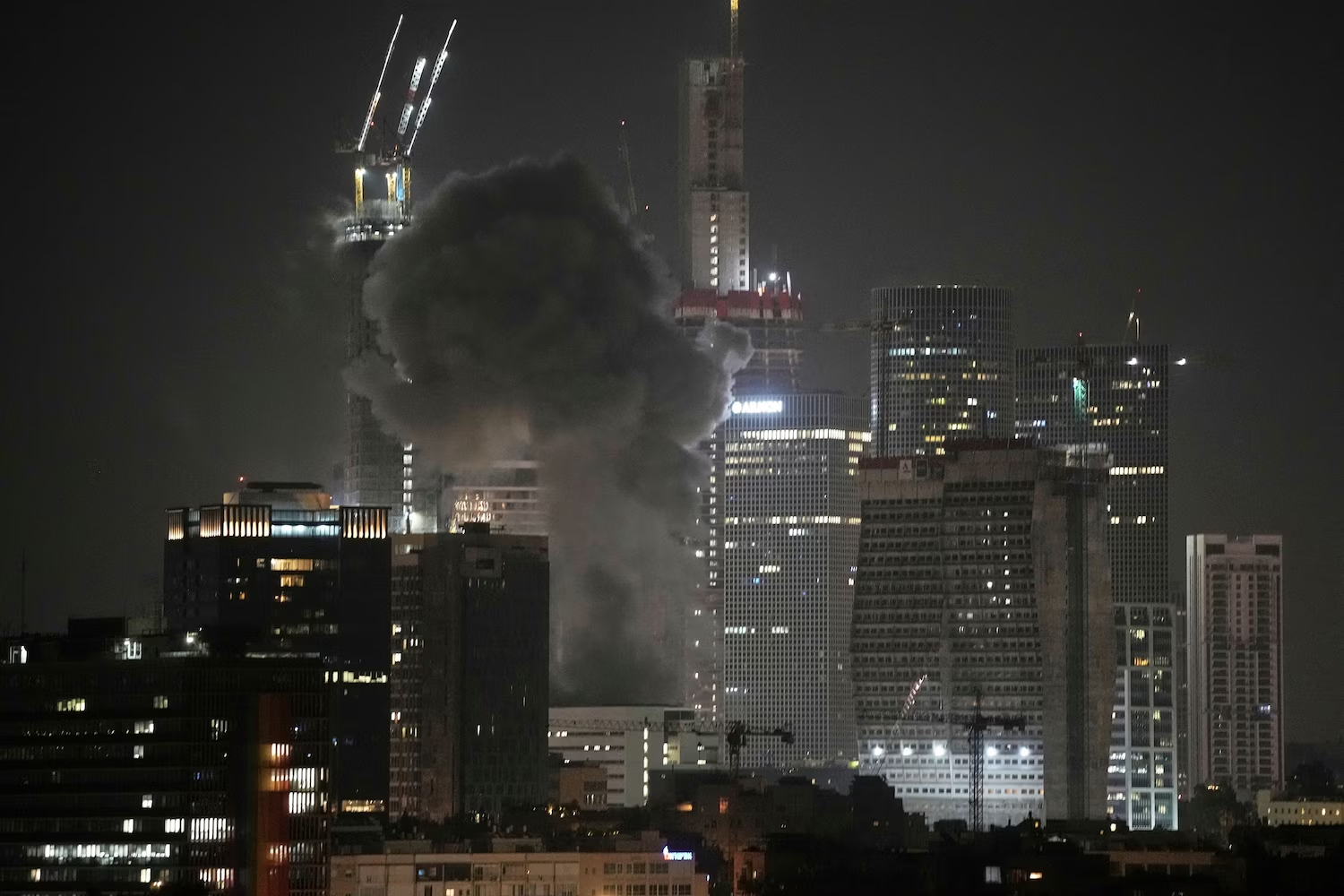In a rapidly escalating conflict in the Middle East, Iran has launched dozens of missiles at Israel, sparking international concern and prompting swift action from the Israel Defense Forces (IDF). The missile barrage, which occurred late in the evening, marks one of the most serious escalations between the two nations in recent years.
Dozens of Iranian Missiles Intercepted by Israel’s Iron Dome
According to a statement released by the IDF on social media platform X, several of the incoming missiles were successfully intercepted by Israel’s Iron Dome missile defense system, a vital layer of protection that has saved countless lives in previous attacks. However, despite these interceptions, some missiles landed in Israeli territory, triggering ongoing search and rescue operations across affected areas.
The Israeli government has urged all residents to stay near shelters and remain alert as further attacks are possible. Emergency protocols have been activated nationwide.
Attack Signals Rising Tensions Between Iran and Israel
While the specific motive behind Iran’s missile strike remains unclear, the timing and scale suggest a serious escalation in long-standing hostilities. The IDF confirmed that the attack may be part of a broader offensive, raising fears of additional coordinated actions.
Iran has long supported anti-Israel militant groups such as Hamas and Hezbollah, and the current attack may be viewed as part of Iran’s larger strategic posture against the Israeli state.
Search and Rescue Missions Underway in Multiple Israeli Cities
As the full extent of the damage is still being assessed, IDF units and emergency responders are actively deployed across various impacted regions. Authorities have not yet released details about specific strike locations or casualties, but the situation remains fluid and urgent.
The IDF has instructed citizens to remain cautious and close to designated shelters, highlighting the ongoing threat and potential for further violence.
Israel’s Iron Dome Proves Effective, But Vulnerabilities Remain
Despite its technological superiority, the Iron Dome is not impenetrable, particularly when faced with large-scale missile barrages. Defense experts warn that even the most advanced systems can be overwhelmed, and this latest attack has exposed the limits of Israel’s defenses.
This reality has renewed public anxiety, especially among civilians who live under the constant threat of missile strikes.
Geopolitical Implications: Regional Instability at a Boiling Point
The missile attack comes during a period of widespread regional instability. Alongside Iran, Israel continues to face threats from groups like Hamas in Gaza and Hezbollah in Lebanon. The involvement of Iran—directly launching missiles—marks a shift from proxy warfare to open confrontation.
The situation is further complicated by broader geopolitical alliances and rivalries, with Iran acting as a major powerbroker in the region.
International Community Calls for De-escalation
Following the attack, global leaders have issued urgent calls for calm and de-escalation. The United Nations condemned the missile launches and emphasized the need for diplomatic solutions to avoid full-scale war. Meanwhile, governments across Europe and North America have expressed solidarity with Israel and called on Iran to halt further aggression.
Many observers note that this attack underscores the importance of renewing peace efforts and resolving the Israeli-Palestinian conflict, which often serves as a flashpoint for wider regional instability.
Civilians Bear the Psychological Toll of Ongoing Conflict
For Israeli civilians, especially those near the border and in missile strike zones, the psychological and emotional impact is profound. The constant sound of air-raid sirens, frequent sheltering, and uncertainty have become a disturbing part of daily life.
While Israeli citizens have shown resilience, the ongoing trauma of living under threat takes a long-term toll on mental health, particularly among children and families.
Conclusion: A Call for Peace Amid Rising Tensions
The Iranian missile strike on Israel is a stark reminder of how fragile peace remains in the Middle East. While the IDF’s response has demonstrated readiness and strength, no defense system offers full protection from conflict on this scale.
As search and rescue efforts continue, Israel must also brace for potential retaliatory or follow-up attacks. The world watches closely, hoping for de-escalation and a return to diplomatic discourse.
Ultimately, lasting peace in the region will not be achieved through military strength alone, but through sustained dialogue, mutual recognition, and a commitment from all parties to resolve the deep-rooted issues fueling the conflict.

